
We kindly inform you that, as long as the subject affiliation of our 300.000+ articles is in progress, you might get unsufficient or no results on your third level or second level search. In this case, please broaden your search criteria.






Since tertiary education is the highest level of the sequentially structured formal education system, one can argue that universities should help their students to achieve the highest levels of literacy. In this sense, academic literacy comprises all skills necessary to competently read and write academic texts. Comparing different information and communication technologies in a historic perspective, it becomes obvious that digital media create new media formats and academic genres. Academic media literacy therefore could be interpreted as the competence to critically use and produce new types of academic artefacts. To be able to teach and train these skills, universities have to become more aware of the requirements of scholarly media use and media production.
More...
The article provides detailed presentations of entities and functions of the Cross-border Regional network for innovative development, the manner and methods of its functioning, and its significance for enhancing university-industry cooperation in innovative development. Special attention was devoted to proper implementation of the Triple Helix concept in the development of an innovative network.
More...
The need to reduce social inequalities in the transition to upper secondary school was one of the arguments for introducing lower secondary schools in 1999 in Poland. The new lower secondary schools extended the common comprehensive curriculum by one year and, in consequence, shifted the decision on choosing an upper secondary school, which was a crucial decision for continuing one’s further educational career in Poland. Three hypotheses were formulated on the impact of the reform on inequalities in Polish schools. The first two concern the importance of social origin for student performance and for the choice of upper secondary school, while the third addresses the effects of growing differences among lower secondary schools, especially in large cities. In order to test the hypotheses, PISA data were used from 2000–2012, which coincides with the period of introducing lower secondary schools in Poland. The PISA results demonstrate that after the reform, there was no decrease in correlations between school performance and socio-economic status of students. Likewise, the hypothesis of a persi-stent impact of social origin on upper secondary school choice also cannot be rejected. However, the increasing diversity of lower secondary schools did not lead to an increase in inequality in Polish education. The latter result has been confirmed by PISA data from eight European countries where the 15-year-old PISA students attend schools which are not divided into tracks. Between 2003 and 2012, the differences in performance among schools increased in most selected countries, but none of these countries saw an increase in educational inequality. The conclusions support the prominent hypothesis of Hans-Peter Shavit and Yossi Blossfeld about the persistence of inequalities in education. School reformers are helpless against stratification in society, which determines the educational attainment of children from different social classes.
More...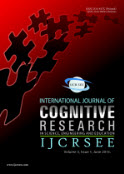
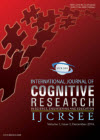
Modernity stands as a widely used term for social change as it involves modification in many forms in the society and the way people develop with different ideologies and movements. Standing on the other side of the traditional and historical, modernity brings new forms of development, communication and connectedness. In this paper, it would be discussed whether the globalization processes are leading to merge by the societies and raising a global modernity. Hence the influence of the West and the pilgrimages drawn from the other societies would be examined. Change is just an unavoidable part of the society seen as a reform, reaction or revolution. However, the historical processes of integration, innovation and development bring different questions and theories. In this paper, it would be referred on the integrative inclinations for merging societies, the understanding of modernity and globalization processes that emerge from the historical development and social change.
More...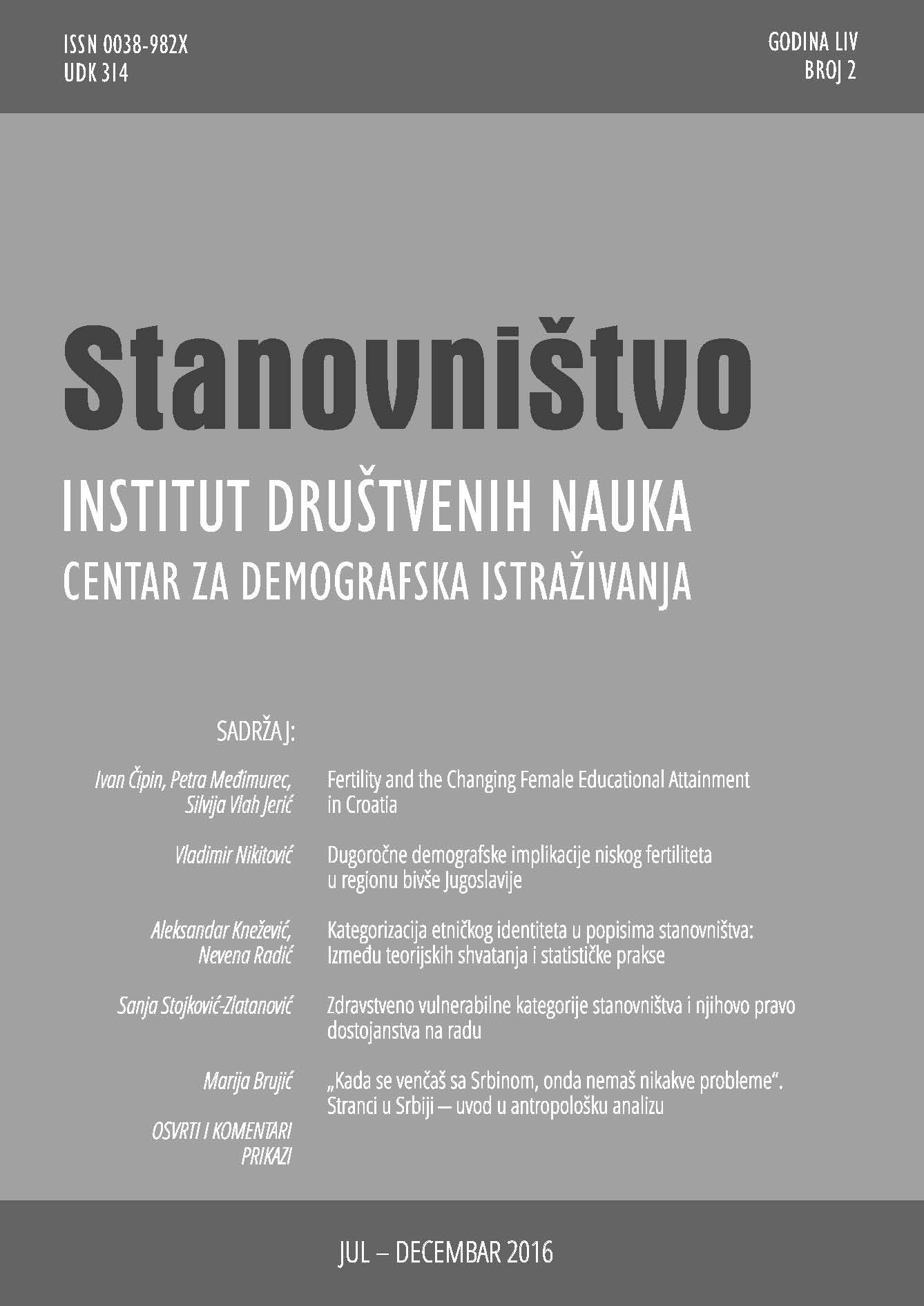
This paper investigates the aggregate relationship between cohort fertility and female educational attainment in Croatia. Numerous demographic studies have examined the link between fertility and the level of education. However, newer research indicates that the field of education might also play a role when trying to explain fertility behavior. We contribute to existing literature on macro-level factors related to reproductive outcomes by considering both the level and field of education as possible sources of cohort fertility differentials. The main goal of the present study is to assess the effect of structural changes in educational attainment on cohort fertility decline by means of demographic decomposition techniques. Our analysis is based on detailed 2011 Census data, which provide information on the number of livebirths by mother’s year of birth, birth order, marital status and educational attainment (i.e. the level and field of education). The results of our decomposition analyses reveal the dominance of the structural effect in explaining the overall completed fertility decline in Croatia. We assumed that the changing distribution of women by field of education at least partially accounts for the observed patterns in completed fertility but found no strong evidence in support of the outlined hypothesis
More...
Many colleges and universities in China have clearly realized that in the process of operating the “Project for Educating and Nurturing Outstanding Engineers” (PENOE), the old educational contents and methods are not suitable for the new developing moral education anymore. Accordingly, as the engineering education is going into reform, it’s necessary to make a change and improve the contents and methods in order to help accelerate the reform as well as achieve the educational goals. The paper briefly explains and discusses the theories of PENOE and moral education at the beginning of the thesis; furthermore, with the reform of engineering education as the background, this paper analysis the issues that exist in moral education in colleges and universities and debates why they exist in the first place and comes up with a conclusion and several solutions to solving the issues in the end.
More...
Today, the construct of knowledge society or learning society is embodied as an ontic need rather than ideal, while the strategy of lifelong learning makes an aspect of its reification. Social transformation where we live has been launched by a radical change in the meaning of knowledge as a phenomenon. Both in the West and in the East, knowledge has always been perceived as something which is related to being, to existence; today, knowledge implies action, doing. It has become a resource and useful goods, namely public goods. In this respect, the new paradigm in education promotes the soundness of acting, rather than perfection of knowledge. So far, the interaction of the world of work and the world of education has been metaphorically reflected through making the status of schools equal to that of factories (authoritarian hierarchical system, bureaucracy, excessive division of labour, direct operating instructions, control in all segments, etc.). Modern social discourse calls for a new school metaphor – perhaps as a professional learning community. In the first part of the paper, the author considers the assumptions of discourse of knowledge society and their implications for pedagogical reflection from the aspect of interpretative paradigm. The second part highlights the importance of a critical attitude toward neglecting the essential prerequisites of knowledge society for educational reality, as well as the need for redefining the pedagogical responsibility of teachers in educational practice of knowledge society.
More...
The present study aims to provide answers to two specific questions: how can we describe the difference in the structure of intellectual abilities of gifted students in two broadly defined areas of knowledge or academic domains, as well as whether the level of academic high school talent varies in relation to the parents’education level. The survey was conducted on a sample of 177 high school students from Serbia, who are identified as gifted based on above-average achievements on intelligence test - KOG 3 (IQ>120) and excellent academic achievement (GPA over 4.50). The construct of academic giftedness, which is associated with the parents’ education level, is defined as an advanced mastery of different academic areas of knowledge, based on high cognitive potential, intrinsic motivation and creativity. Thus defined academic talent was measured by 13-items scale, designed for research purposes. Investigation of differences in the intellectual profile of gifted students in two broadly defined academic domains refers to the merits of the distinction between the two basic forms of academic talents, which are labeled as verbal and nonverbal. In addition, by examining the relation between the level of students’ academic talent and education of their parents, significant differences were found only in relation to the education level of their mothers.
More...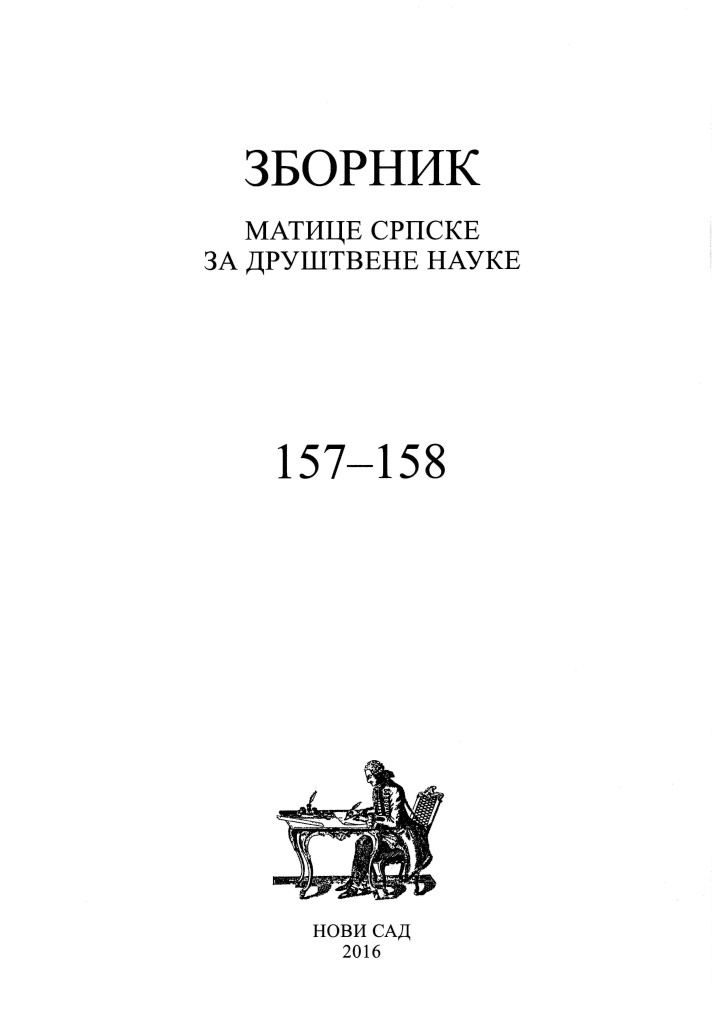
Youth unemployment in Serbia has structural and long-term characteristics. This is related to disbalance between competencies of young people and needs of employers. As a result of the economic crisis, the relative position of young people with a university degree in this respect has deteriorated further. University career centers are regarded as intermediaries in the labor market. In addition to informational and advisory services, educational function of career centers is an essential element of their scope of work. The question is whether and to what extent the educational role of the university career centers is recognized in national education and employment policies. The analysis results vary. There is a potential for further growth and recognition of the role of university career centers as providers of educational services, as well as important elements of labor market harmonization. That would finally lead to improvement of social and economic position of young people with a university degree.
More...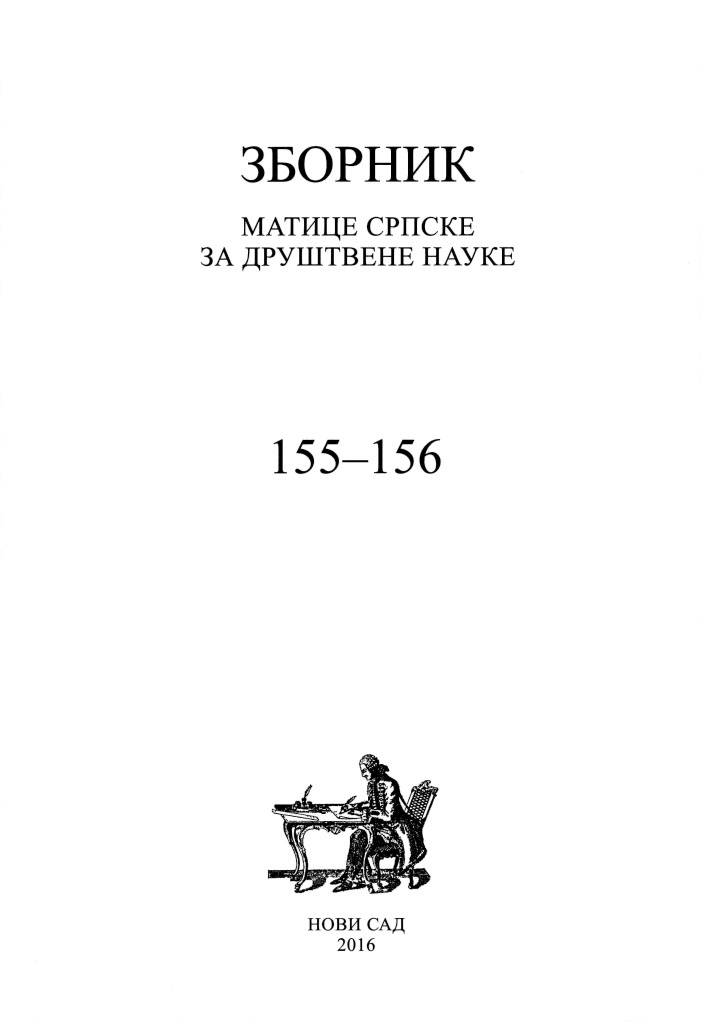
This paper is a survey of contemporary education economics. Special focus is put on the evolution of theoretical concepts, questions opened, given answers and analytical methods. The paper contains introductory remarks and two thematic units. In the first, two economic models of education are presented: human capital model and sorting (signalling and screening) model. By reviewing their common elements, an attempt was made to generalize the models. In the second part, education production process is considered with special reference to education production functions. However, production functions approach in education open up many problems. Hereof, an alternative approach to look into relationship between education resources and performance is presented – by measuring efficiency in educational context.
More...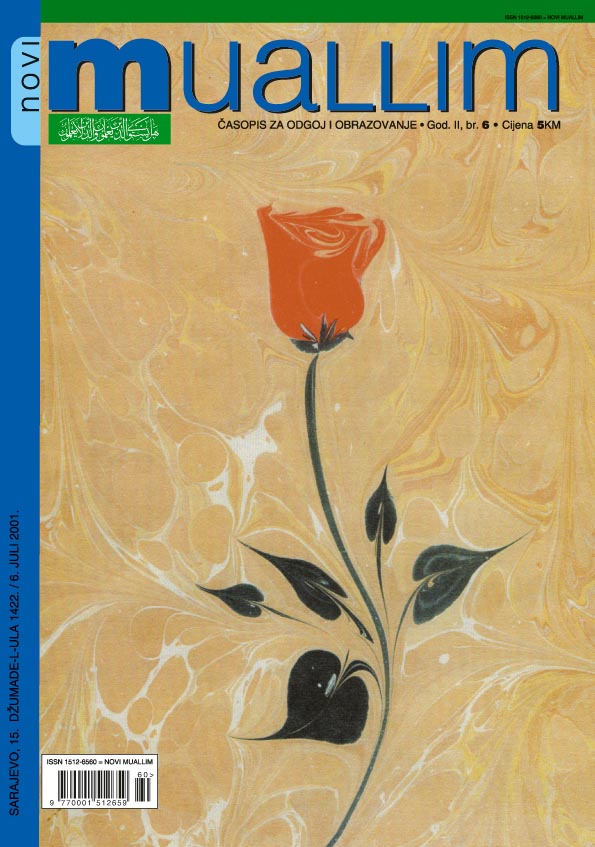
Migracija ljudi po svim zemljama svijeta iz političkih i socio-ekonomskih razloga, migracije koje su posljedica ratnih djelovanja, “narušavanje” jednonacionalnih koncepta i okvira, te nepostojanje multikulturne i multireligijske svijesti, uvaćavanja drugog i različitog, i nespremnost za življenje i djelovanje u takvim uvjetima dovode do potrebe preispitivanja postojećih sistema odgoja i obrazovanja i njihove kvalitativne izmjene i dopune.
More...
"Srpska deca neće nikada učiti iz udžbenika koje su pisali tamo neki mali Turci koji sebe nazivaju Bošnjacima”, čulo se na nedavno održanom skupu u Sarajevu, čiji su organizatori bil UNESCO i George-Eckertov institut.
More...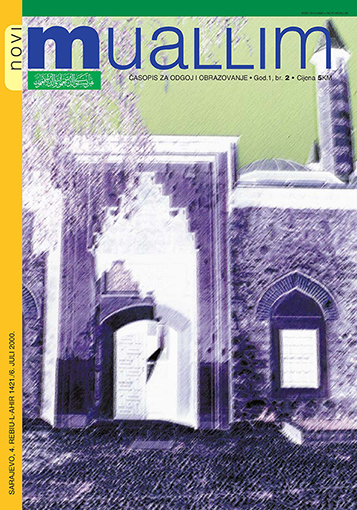
Postoji u našem narodu jedna izreka koja možda najbolje ilustrira trenutno konfuzno i haotično stanje u obrazovnom sistemu Bosne i Hercegovine. U toj izreci, koja potječe još od osmanskoga doba, kaže se: "Koliko vilajeta, toliko adeta", a u našem vremenu moglo bi se reći: Koliko kantona, toliko i univerziteta, koliko gradova, toliko i fakulteta.
More...